 W
WAnti-Leninism is opposition to the political philosophy Leninism as advocated by Vladimir Lenin.
 W
WAmadeo Bordiga was an Italian Marxist, a contributor to communist theory, the founder of the Communist Party of Italy (PCd'I), a member of the Communist International (Comintern) and later a leading figure of the International Communist Party. Bordiga was originally associated with the PCd'I, but he was expelled in 1930 after being accused of Trotskyism.
 W
WJosip Broz, commonly known as Tito, was a Yugoslav communist revolutionary and statesman, serving in various roles from 1943 until his death in 1980. During World War II, he was the leader of the Partisans, often regarded as the most effective resistance movement in occupied Europe. He also served as the president of the Socialist Federal Republic of Yugoslavia from 14 January 1953 until his death on 4 May 1980.
 W
WAlbert Camus was a French philosopher, author, and journalist. He was awarded the 1957 Nobel Prize in Literature at the age of 44, the second-youngest recipient in history. His works include The Stranger, The Plague, The Myth of Sisyphus, The Fall, and The Rebel.
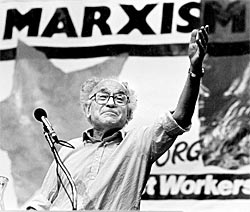 W
WTony Cliff was a Trotskyist activist. Born to a Jewish family in Palestine, he moved to Britain in 1947 and by the end of the 1950s had assumed the pen name of Tony Cliff. A founding member of the Socialist Review Group, which became the International Socialists and then the Socialist Workers Party. In 1977, Cliff was effectively the leader of all three.
 W
WCouncil communism is a current of communist thought that emerged in the 1920s. Inspired by the November Revolution, council communism was opposed to state socialism and advocated workers' councils and council democracy. Strong in Germany and the Netherlands during the 1920s, council communism continues to exist as a small minority in the left.
 W
WCritical Left was a communist and Trotskyist political party in Italy, affiliated to the Fourth International.
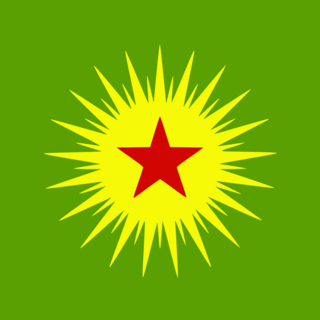 W
WDemocratic confederalism also known as Kurdish communalism or Apoism is a political concept theorized by Kurdistan Workers Party (PKK) leader Abdullah Öcalan about a system of democratic self-organization with the features of a confederation based on the principles of autonomy, direct democracy, environmentalism, feminism, multiculturalism, self-defense, self-governance and elements of a sharing economy. Influenced by social ecology, libertarian municipalism, Middle Eastern history, nationalism and general state theory, Öcalan presents the concept as a political solution to Kurdish nationalist aspirations, as well as other fundamental problems in countries in the region deeply rooted in class society, and as a route to freedom and democratization for people around the world.
 W
WMilovan Djilas ; 12 June 1911 – 20 April 1995) was a Yugoslav communist politician, theorist and author. He was a key figure in the Partisan movement during World War II, as well as in the post-war government. A self-identified democratic socialist, Djilas became one of the best-known and most prominent dissidents in Yugoslavia and all of Eastern Europe.
 W
WRuth Fischer was an Austrian and German Communist and a co-founder of the Austrian Communist Party in 1918. She later became a staunch anti-Stalinist activist.
 W
WAndré Paul Guillaume Gide was a French author and winner of the Nobel Prize in Literature. Gide's career ranged from its beginnings in the symbolist movement, to the advent of anticolonialism between the two World Wars. The author of more than fifty books, at the time of his death his obituary in The New York Times described him as "France's greatest contemporary man of letters" and "judged the greatest French writer of this century by the literary cognoscenti."
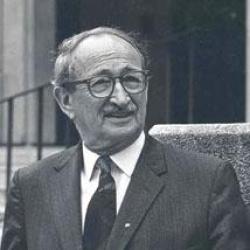 W
WSidney Hook was an American philosopher of the pragmatist school known for his contributions to the philosophy of history, the philosophy of education, political theory, and ethics. After embracing communism in his youth, Hook was later known for his criticisms of totalitarianism, both fascism and Marxism–Leninism. A pragmatic social democrat, Hook sometimes cooperated with conservatives, particularly in opposing Marxism–Leninism. After World War II, he argued that members of such groups as the Communist Party USA and Leninists like democratic centralists could ethically be barred from holding the offices of public trust because they called for the violent overthrow of democratic governments.
 W
WThe Independent Labour Party (ILP) was a British political party of the left, established in 1893, when the Liberals appeared reluctant to endorse working-class candidates, representing the interests of the majority. A sitting independent MP and prominent union organiser, Keir Hardie, became its first chairman.
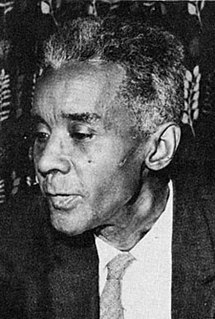 W
WCyril Lionel Robert James, who sometimes wrote under the pen-name J. R. Johnson, was a Trinidadian historian, journalist and Marxist. His works are influential in various theoretical, social, and historiographical contexts. His work is a staple of Marxism, and he figures as a pioneering and influential voice in postcolonial literature. A tireless political activist, James is the author of the 1937 work World Revolution outlining the history of the Communist International, which stirred debate in Trotskyist circles, and in 1938 he wrote on the Haitian Revolution, The Black Jacobins.
 W
WNikita Sergeyevich Khrushchev was a Soviet politician who served as the First Secretary of the Communist Party of the Soviet Union from 1953 to 1964 and as chairman of the country's Council of Ministers from 1958 to 1964. During his rule, Khrushchev stunned the communist world with his denunciation of Stalin's crimes and began de-Stalinization. He sponsored the early Soviet space program, and enactment of relatively liberal reforms in domestic policy. After some false starts, and a narrowly avoided nuclear war over Cuba, he conducted successful negotiations with the United States to reduce Cold War tensions. His proclivity toward recklessness led the Kremlin leadership to strip him of power, replacing him with Leonid Brezhnev as First Secretary and Alexei Kosygin as Premier.
 W
WKhrushchevism was a form of Marxism–Leninism which consisted of the theories and policies of Nikita Khrushchev and his administration in the Soviet Union.
 W
WArthur Koestler, was a Hungarian British Jewish author and journalist. Koestler was born in Budapest and, apart from his early school years, was educated in Austria. In 1931, Koestler joined the Communist Party of Germany, but he resigned in 1938 because Stalinism disillusioned him.
 W
WDonduk Kuular was a Tuvan monk, politician, and prime minister of the Tuvan People's Republic.
 W
WLeft communism, or the communist left, is a position held by the left wing of communism, which criticises the political ideas and practices espoused by Marxist–Leninists and social democrats. Left communists assert positions which they regard as more authentically Marxist than the views of Marxism–Leninism espoused by the Communist International after its Bolshevization by Joseph Stalin and during its second congress.
 W
WLibertarian Marxism is a broad scope of economic and political philosophies that emphasize the anti-authoritarian and libertarian aspects of Marxism. Early currents of libertarian Marxism such as left communism emerged in opposition to Marxism–Leninism.
 W
WLotta Comunista is a political party born in Italy that does not recognize parliamentary dynamics for the party's strategy in the current historical period, and thus describes itself as unparliamentary. It is a revolutionary and internationalist party founded by Arrigo Cervetto and Lorenzo Parodi in 1965, and inspired by the theory and practice of Marx, Engels and Lenin.
 W
WNestor Ivanovych Makhno, commonly known as Bat'ko Makhno, was a Ukrainian anarchist revolutionary and the commander of an independent anarchist army in Ukraine from 1917–21.
 W
WHerbert Marcuse was a German-American philosopher, sociologist, and political theorist, associated with the Frankfurt School of critical theory. Born in Berlin, Marcuse studied at the Humboldt University of Berlin and then at Freiburg, where he received his PhD. He was a prominent figure in the Frankfurt-based Institute for Social Research – what later became known as the Frankfurt School. He was married to Sophie Wertheim (1924–1951), Inge Neumann (1955–1973), and Erica Sherover (1976–1979). In his written works, he criticized capitalism, modern technology, Soviet Communism and entertainment culture, arguing that they represent new forms of social control.
 W
WEric Arthur Blair, known by his pen name George Orwell, was an English novelist, essayist, journalist and critic. His work is characterised by lucid prose, biting social criticism, opposition to totalitarianism, and outspoken support of democratic socialism.
 W
WEstelle Sylvia Pankhurst was an English campaigner for the suffrage and suffragette movement, a socialist and later a prominent left communist and activist in the cause of anti-fascism and the international auxiliary language movement. She spent much of her later life campaigning on behalf of Ethiopia, where she eventually moved.
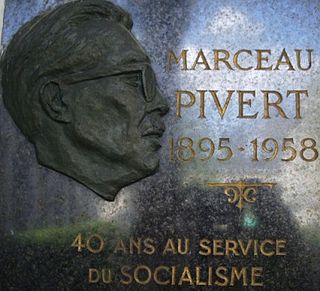 W
WMarceau Pivert was a French schoolteacher, trade unionist, socialist militant, and journalist. He was an alumnus of the École normale supérieure de Saint-Cloud.
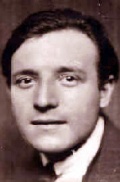 W
WHenry Poulaille was a French writer and a pioneer of proletarian literature.
 W
WJohn Cowper Powys was a British philosopher, lecturer, novelist, literary critic, and poet, born in Shirley, Derbyshire, where his father was Vicar of St Michael and All Angels Parish Church in 1871–1879. Powys appeared with a volume of verse in 1896 and a first novel in 1915, but gained success only with his novel Wolf Solent in 1929. He has been seen as a successor to Thomas Hardy, and Wolf Solent, A Glastonbury Romance (1932), Weymouth Sands (1934), and Maiden Castle (1936) have been called his Wessex novels. As with Hardy landscape is important. So is elemental philosophy in his characters' lives. In 1934 he published an autobiography. Powys had success as an itinerant lecturer, in England, and in 1905–1930 in the US, where he wrote many of his novels and had several first published. He moved to Dorset, England, in 1934 with his American partner, Phyllis Playter. In 1935 they moved to Corwen, Merionethshire in Wales, where he set two novels, then in 1955 to Blaenau Ffestiniog, where he died in 1963.
 W
WJapan Revolutionary Communist League, National Committee is a Japanese far-left revolutionary group, often referred to as Chūkaku-ha in Japanese. Their main goal is to have Japan, and the entire world, adopt communist policies. Chūkaku-ha reject imperialism and Stalinism.
 W
WThe Right Opposition or Right Tendency, in VKP(b) was a conditional label formulated by Stalin in fall of 1928 in regards the opposition against certain measures included within the first five-year plan by Nikolai Bukharin, Alexei Rykov, Mikhail Tomsky and their supporters within the Soviet Union that did not follow the so called "general line of the party". It is also the name given to "right-wing" critics within the Communist movement internationally, particularly those who coalesced in the International Communist Opposition, regardless of whether they identified with Bukharin and Rykov.
 W
WOtto Roth, occasionally rendered as Willy Otto Roth or Dr. Rot, was a Hungarian and Romanian lawyer and politician who served as the only Commissioner-in-Chief of the Banat Republic, between October 1918 and February 1919. Hungarian Jewish but non-religious, he entered politics with the Hungarian Social Democratic Party (MSZDP) while still a subject of the Kingdom of Hungary. Roth was a local councilor in Timișoara during most of World War I, emerging as a regional leader of the MSZDP before and during the Aster Revolution. He is credited with proclaiming the Banat Republic on 31 October 1918, though the initiative was also attributed to Albert Bartha, who briefly served as its military leader. The state was an autonomous extension of the Hungarian Republic, set up in order to prevent invasion by the French Danube Army, but also aiming to preserve regional integrity against rival nationalisms. It was generally rejected by Romanians and Serbs, who organized their own representative institutions.
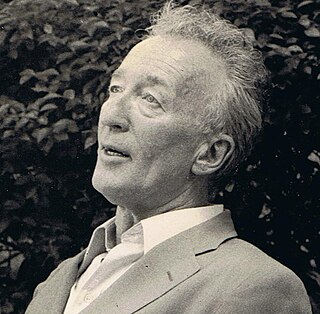 W
WClaude Roy was a French poet and essayist. He was born and died in Paris.
 W
WShachtmanism is the form of Marxism associated with Max Shachtman (1904–1972). It has two major components: a bureaucratic collectivist analysis of the Soviet Union and a third camp approach to world politics. Shachtmanites believe that the Stalinist rulers of proclaimed socialist countries are a new ruling class distinct from the workers and reject Trotsky's description of Stalinist Russia as a "degenerated workers' state".
Secondino Tranquilli, known by the pseudonym Ignazio Silone, was an Italian political leader, novelist, and short-story writer, world-famous during World War II for his powerful anti-Fascist novels. He was nominated for the Nobel prize for literature ten times. He was awarded the 1969 Jerusalem Prize, and the 1971 Prix mondial Cino Del Duca.
 W
WSir Stephen Harold Spender was an English poet, novelist and essayist whose work concentrated on themes of social injustice and the class struggle. He was appointed Poet Laureate Consultant in Poetry to the United States Library of Congress in 1965.
 W
WTitoism is a political philosophy most closely associated with Josip Broz Tito during the Cold War. It is characterized by a broad Yugoslav identity, workers' self-management, a political separation from the Soviet Union, and leadership in the Non-Aligned Movement.
 W
WLev Davidovich Bronstein, better known as Leon Trotsky, was a Ukrainian-Russian Marxist revolutionary, political theorist and politician. Ideologically a communist, he developed a variant of Marxism which has become known as Trotskyism.
 W
WTrotskyism is the political ideology and branch of Marxism developed by Ukrainian-Russian revolutionary Leon Trotsky and by some other members of the Left Opposition and Fourth International. Trotsky self-identified as an orthodox Marxist, a revolutionary Marxist, and Bolshevik–Leninist, a follower of Marx, Engels, and of 3L: Lenin, Karl Liebknecht, Rosa Luxemburg. He supported founding a vanguard party of the proletariat, proletarian internationalism, and a dictatorship of the proletariat based on working class self-emancipation and mass democracy. Trotskyists are critical of Stalinism as they oppose Joseph Stalin's theory of socialism in one country in favor of Trotsky's theory of permanent revolution. Trotskyists also criticize the bureaucracy that developed in the Soviet Union under Stalin.
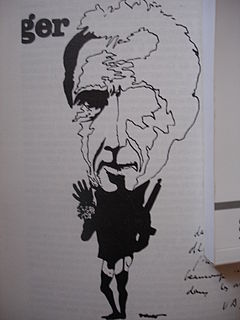 W
WRoger Vailland was a French novelist, essayist, and screenwriter.